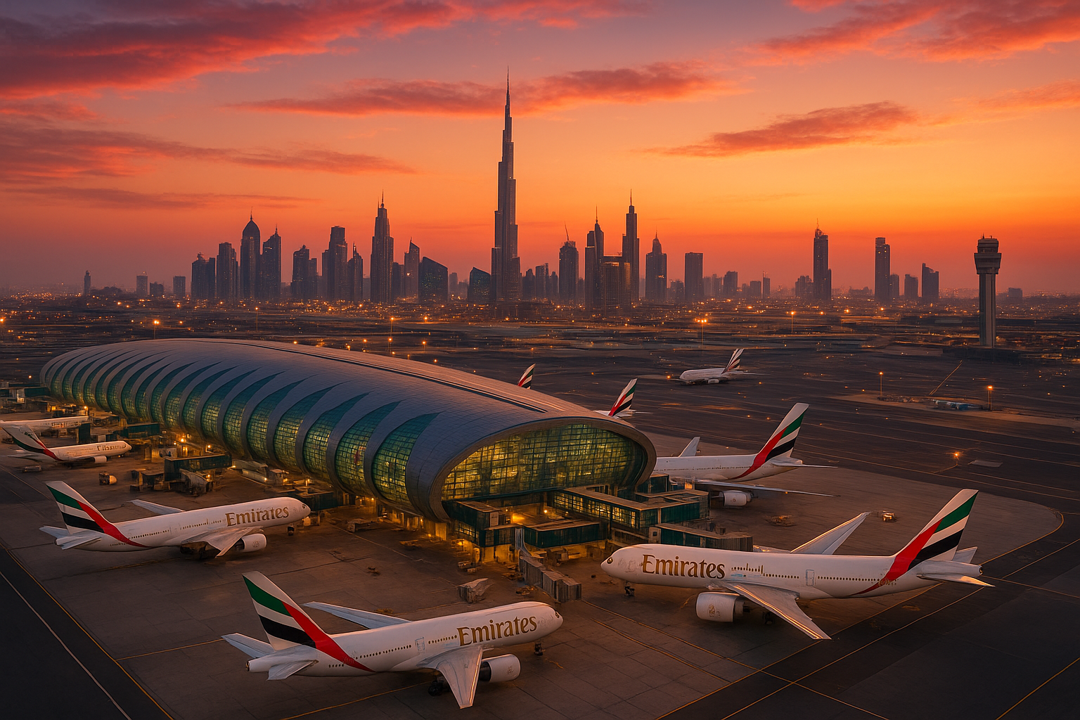
Post by : Shivani
Doha’s Hamad International Airport (HIA) has quickly become a top global aviation hub since its opening in 2014. With sleek modern design, prominent art installations, luxury retail and world-class lounges, HIA consistently ranks among the best airports worldwide. Its strategic location enables Qatar Airways to connect Europe, Africa and Asia with efficient routings and competitive travel times.
Qatar Airways has transformed Doha into a central point for long-haul travel. Renowned for exceptional service and award-winning business-class cabins, the carrier has strengthened the synergy between airline and airport — elevating Doha’s position in global aviation rankings.
HIA is undergoing expansion projects designed to scale capacity toward 70 million passengers annually. Qatar’s long-term plan is to position Doha as a major transit hub, leveraging global events and sustained tourism to drive long-term passenger growth.
Dubai (DXB) often leads in international passenger numbers. Singapore (Changi) is widely recognized for operational excellence and passenger experience. Doha (HIA) is a rapidly rising competitor, challenging the traditional leaders through network strategy and premium product offerings.
Each hub pursues a different competitive edge: Dubai invests heavily in automation and AI-driven passenger flows; Singapore pioneers biometric and smart-airport solutions; Doha combines luxury, efficient routing and distinctive passenger amenities to craft a futuristic journey.
While Dubai's edge is scale, Singapore leads on innovation and customer satisfaction, and Doha focuses on luxury and transit efficiency. Together they shape a resilient triangle of global aviation leadership.
AI-driven check-ins, predictive maintenance and automated baggage systems are transforming airport operations. The wider adoption of biometric boarding and passenger analytics is expected to become standard by the end of the decade.
Leading hubs invest in sustainable aviation fuels (SAF), energy-efficient terminals and renewable energy to reduce aviation’s carbon footprint while sustaining growth.
From contactless boarding to digital health credentials, digital-first passenger journeys are reshaping expectations and operational models across the world.
Newly expanded airports in cities such as Istanbul, Riyadh and Hong Kong increase competition for long-haul transfer traffic. Economic volatility, geopolitical tensions and climate goals add complexity to long-term planning for all major hubs.
Why is Dubai considered a leading global aviation hub?
Dubai's strategic geography, large-capacity DXB terminal and Emirates’ global network drive its high international passenger volumes.
How does Singapore maintain its aviation dominance?
Through relentless focus on passenger experience, innovation, and a reputation for operational excellence that supports Singapore Airlines' premium product.
What makes Doha’s Hamad International Airport unique?
HIA combines luxury terminal design, Qatar Airways’ network reach and targeted expansion to create a compelling transit hub proposition.
Will other cities challenge Dubai, Singapore, and Doha?
Yes — growing hubs in the Middle East and Asia will intensify competition, but DXB, Changi and HIA maintain advantages through infrastructure, investment and airline partnerships.
Dubai, Singapore and Doha have cemented their roles as the next-generation aviation hubs. Each leverages different strengths — scale, innovation and luxury — to create resilient, future-ready networks. As technology and sustainability shape aviation’s future, these three cities will remain central to global connectivity.
#GlobalAviation #AviationHubs #AirTravel #FutureOfAviation #AviationNews #SmartAirports #AirportTechnology #AirlineIndustry #AviationInnovation #TravelTrends










Advances in Aerospace Technology and Commercial Aviation Recovery
Insights into breakthrough aerospace technologies and commercial aviation’s recovery amid 2025 chall

Defense Modernization and Strategic Spending Trends
Explore key trends in global defense modernization and strategic military spending shaping 2025 secu

Tens of Thousands Protest in Serbia on Anniversary of Deadly Roof Collapse
Tens of thousands in Novi Sad mark a year since a deadly station roof collapse that killed 16, prote

Canada PM Carney Apologizes to Trump Over Controversial Reagan Anti-Tariff Ad
Canadian PM Mark Carney apologized to President Trump over an Ontario anti-tariff ad quoting Reagan,

The ad that stirred a hornets nest, and made Canadian PM Carney say sorry to Trump
Canadian PM Mark Carney apologizes to US President Trump after a tariff-related ad causes diplomatic

Bengaluru-Mumbai Superfast Train Approved After 30-Year Wait
Railways approves new superfast train connecting Bengaluru and Mumbai, ending a 30-year demand, easi